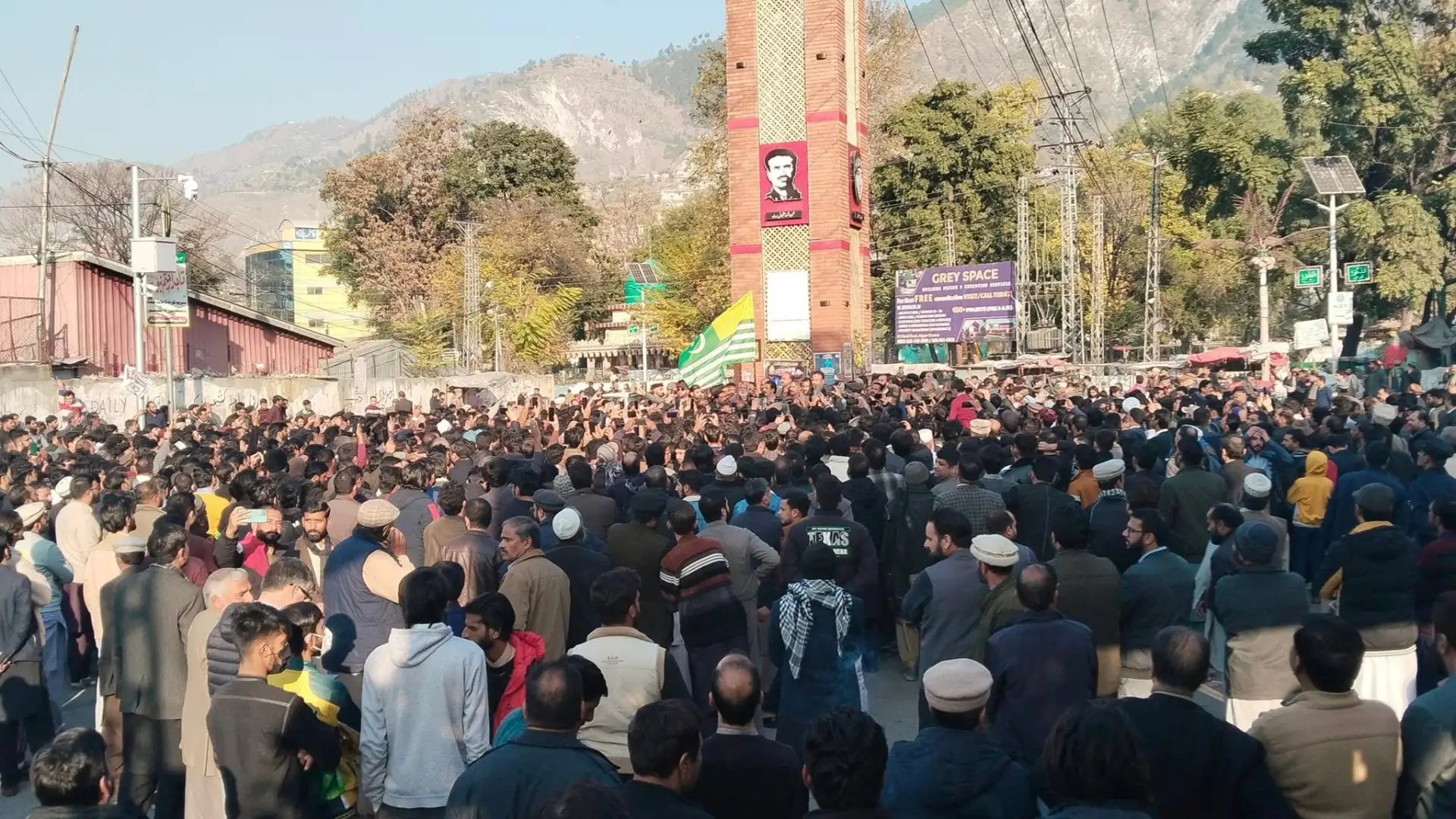Editorial
Last week, Azad Jammu and Kashmir (AJK) witnessed an unprecedented wave of protests led by local traders and activists, forcing authorities to back down from a proposed law aimed at restricting freedom of expression and assembly. This public uprising, however, is not an isolated event. Since 2022, AJK has experienced ongoing turmoil, particularly over demands for flour subsidies akin to those in Gilgit-Baltistan. Despite these demands, the authorities largely ignored the pleas of local traders and activists, escalating frustrations.
The turning point came with a steep hike in electricity tariffs, which triggered outrage. A coalition of civil society groups, trade unions, and activists, called the Joint Awami Action Committee (JAAC), united to demand electricity at production cost. AJK, home to major hydropower projects like the Mangla Dam and Neelum-Jhelum, generates 2,600 MW of electricity, but only consumes 350 MW, exacerbating the demand for affordable power. The tariff hike spurred widespread strikes in August and September 2023, and the government formed a committee to address the issue. However, their failure to meet the key demand for affordable electricity only fueled further protests.
In May 2024, the JAAC-led protests escalated into a four-day march to Muzaffarabad, supported by all sections of society, including workers from political parties. This massive show of solidarity forced the government to meet several of their demands, including subsidized utility rates and wheat prices, after the federal government announced a Rs23 billion grant to AJK.
Despite this victory, the ruling elite quickly resorted to a two-pronged propaganda campaign. They falsely claimed that Indian agencies funded the protests and attempted to label the movement as anti-Pakistan. However, the JAAC’s movement was entirely homegrown, fueled by systemic issues such as corruption, poor governance, and flawed electoral processes. The protest signaled a shift, with nationalist groups supporting the movement, marking a departure from their traditional priorities.
The impact of the protests unsettled the authorities, who attempted to counteract by organizing rallies to demonstrate solidarity with Pakistan. However, public interest was minimal, and when these rallies failed, the government introduced draconian legislation to curtail freedom of expression and assembly. This sparked further protests, and the authorities were eventually forced to meet the public’s demands.
While normalcy has returned, the underlying disconnect between the ruling elites and the people remains. Corruption, mismanagement, and the overreach of federal control in AJK’s politics have fostered a system that prioritizes federal interests over the needs of local constituents. The political process in AJK has become increasingly disconnected from democratic practices, with representatives prioritizing Islamabad’s directives over their duties to the people. This governance model has alienated the masses, compelling them to take to the streets in demand of accountability and reform.
















